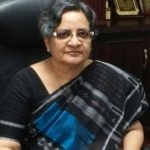Course Information
- 2025-26
- CUT215
- 5-Year B.A., LL.B. (Hons.), 3-Year LL.B. (Hons.), LL.M.
- III, IV, V
- Jul 2025
- Elective Course
I have undertaken to teach the current course with the intention to demystify the institutions of marriage and family which have been the scene of violation of girls and women’s fundamental human rights and much violence, yet almost, if not all girls and young women are socialised into seeking romantic relationships and marriage through films, TV serials, fiction etc., ending up disillusioned, traumatised, or even dead. Young women and men enter these relationships dewy eyed, looking at these institutions through rose-colored glasses. Even our judges decide cases sometimes based on abstract romanticisation of marriage and family resulting in much pain and even death for many women, as a consequence.
Marriage and Family are the fundamental institutions of society. It is through them that sexual relationships and birth of children are regulated. Religion and culture dictate the form, structure and nature of relationships, so do law and the legal institutions. Divorce rates have been increasing, but that has not stopped individuals from remarrying and of the queer community seeking the right to marry. There is no preparation or training for the roles within these institutions except socialisation and through information gathered from story books since childhood and through the visual media.
This course will commence with a discussion of a lay person’s understanding of marriage and family based on anecdotes, clippings from films, newspapers etc and move on to how the discipline of Sociology and religious texts define them. After which we will examine how the Parliament and the judiciary have defined and responded to the problems that arise from and in these institutions.
The readings selected are mostly from a feminist perspective and shed light on these institutions and how they have impacted women through history. Case laws will be the means through which we seek to understand the judicial ideas and responses.
Seminar style discussions, lectures, debates and response papers will be the way that the identified topics will be studied. Use of the visual media will be limited to the introductory and concluding classes of the course.
1. Perception of Marriage and Family
- amongst the general public,
- meaning and purpose of marriage and family in religious texts,
- Perception of sociologists regarding marriage and family.
- Origin of Family and Marriage – a Marxist perspective
- Feminist Perspective of these two institutions and their impact or consequences for women
2. Understanding of Marriage and Family as per the law and judicial decisions
- Laws relating to marriage
- Laws relating to offences as a consequence of marriage
- Laws relating to the family
3. Transformation of marriage and family
- Changing faces of marriage and family
- Challenges to these two institutions in the 21st century.


